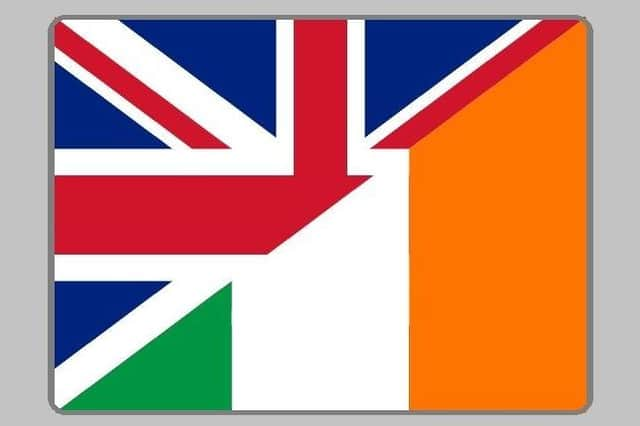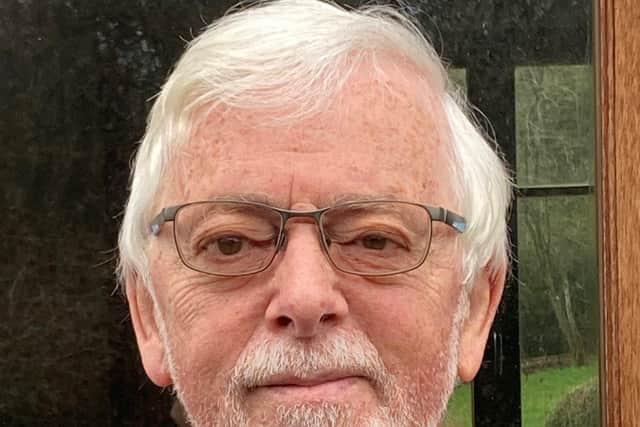My vision for NI’s future as a lapsed Protestant who supports Irish unity


There would still be a constitutional requirement that Unionists and Nationalists should cooperate to create a parliamentary majority. But parties that veered significantly from the consensus would do so from the opposition benches.
Thus, as one possible, if fantastical, outcome six years from now, we could have an Executive made up of Ulster Unionists, SDLP, Alliance and Green MLAs, with Sinn Fein, the DUP and TUV as the Opposition. Stranger things have happened (though not recently and not often).
Advertisement
Hide AdAdvertisement
Hide AdIf this were the case, and with the NI Protocol (as amended by the UK and EU) accepted as settled law, there would be a light-touch border in the Irish Sea and free trade between NI, Republic, and EU.


Stormont would get on with the business of government. Bills would be drafted and debated; votes would be taken. The Executive would defend its actions and attempt to move forward with an agreed agenda. Opposition MLAs would put up their own ideas and alternative courses of action.
Ministers and heads of departments would meet once a month with their Dublin opposite numbers. The existing North-South Ministerial Council, with its headquarters in (as it happens) English Street, Armagh, would be expanded, with a larger secretariat drawn from both jurisdictions.
In April and September each year, there would be a meeting of the full Council presided over by the Northern Ireland Secretary, attended by the UK prime minister and the Taoiseach.
Advertisement
Hide AdAdvertisement
Hide AdIn the House of Commons. Northern Ireland Questions would remain a feature of the Westminster agenda.
Taxpayers in NI would continue to pay UK income tax and National Insurance and enjoy exactly the same benefits as citizens of the broader UK, including full access to the NHS and state pensions.
In the above context, Northern Ireland would continue to send 18 MPs to Westminster, where they’d have full voting rights and could sit on all committees. Sinn Fein candidates would, if elected, be required to take their seats, affirming their loyalty to the constitutional arrangements in NI, not the Crown.
The Queen would continue as head of state, but NI citizens could register to vote for the Irish President, who would in future be free to attend events in NI to which he (or she) was officially invited.
Advertisement
Hide AdAdvertisement
Hide AdThe Union Flag and Irish tricolour on official buildings, including council offices, would be regarded as jointly emblematic of NI.
Three members of the European Parliament would, by special arrangement with Brussels, be elected from NI, able to vote on all matters directly affecting NI, the Republic and trade with the UK.
Each party in the Assembly with at least 10 seats would elect one of their MLAs to sit in the Irish Senate, with five-year mandates and the same restricted voting rights as NI MEPs.
NI would propose a specialist judge to be an advocate-general in the ECJ, advising (but not ruling) on matters pertaining to NI.
Advertisement
Hide AdAdvertisement
Hide AdThe NI Government would establish offices in Dublin, Brussels, and Washington in addition to the London office.
British and Irish passport offices would be based in Belfast. NI citizens holding Irish passports would, as now, have automatic right of residence and the freedom to work in all countries of the EU. Those choosing to hold only UK passports would be treated by the EU as British citizens.
The PSNI, as a full member of Europol, would interact closely with the Garda Siochana.
In 2028 – 30 years on from the Good Friday Agreement – a border poll would be held, resulting either in a narrow victory for Irish unity or, just as likely, for the maintenance (for the time being) of the existing constitutional arrangements.
Advertisement
Hide AdAdvertisement
Hide AdIn the event of a unification vote, negotiations would open over a five-to-seven-year period, with a confirmation referendum to be held no later than 2035. Alternatively, the new interim arrangements would extend for another 20 years, leaving any final decisions to a future generation.
As a final comment, I would remind readers that the impossible is only impossible until it happens. In the meantime, I live in hope.
Walter Ellis describes himself as “a lapsed east Belfast Protestant” (who grew up in Ballyhackamore and Dundonald) and “a lifelong believer in the cause of a United Ireland”; he is a retired journalist, having written for the Cork Examiner, Irish Times, Sunday Times, and more. Now 73, he lives in rural France
More from the News Letter:
Click here – PSNI has a Father Ted moment as it insists new ‘cyclist-style’ 2020 uniforms are very very very dark green, not black
Advertisement
Hide AdAdvertisement
Hide AdClick here – Final farewell to fatal workplace accident victim John Traynor as mourners told he was ‘a good and gentle man’
A message from the Editor:
Thank you for reading this story on our website. While I have your attention, I also have an important request to make of you.
With the coronavirus lockdowns having had a major impact on many of our advertisers — and consequently the revenue we receive — we are more reliant than ever on you taking out a digital subscription.
Subscribe to newsletter.co.uk and enjoy unlimited access to the best Northern Ireland and UK news and information online and on our app. With a digital subscription, you can read more than 5 articles, see fewer ads, enjoy faster load times, and get access to exclusive newsletters and content.
Visit
https://www.newsletter.co.uk/subscriptionsnow to sign up.
Advertisement
Hide AdAdvertisement
Hide AdOur journalism costs money and we rely on advertising, print and digital revenues to help to support them. By supporting us, we are able to support you in providing trusted, fact-checked content for this website.
Ben Lowry, Editor